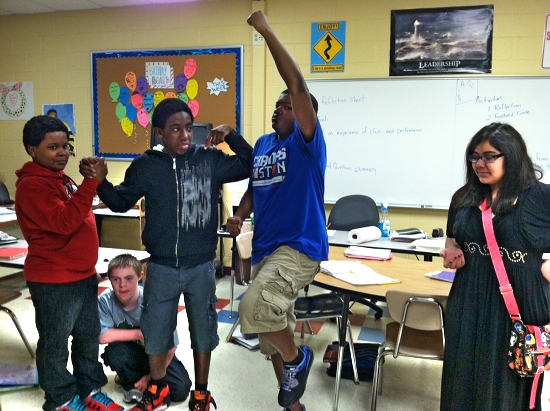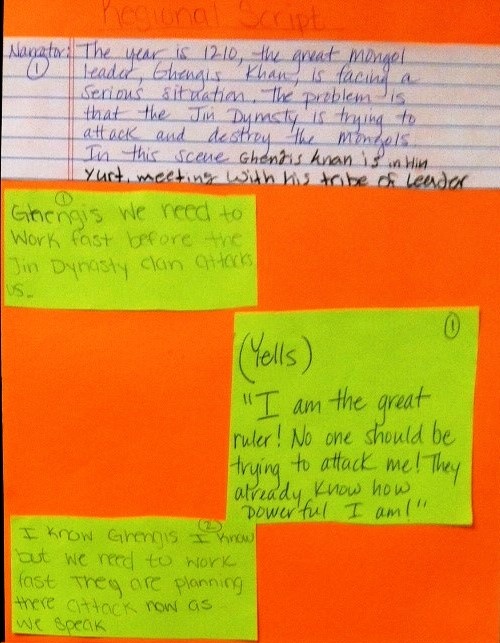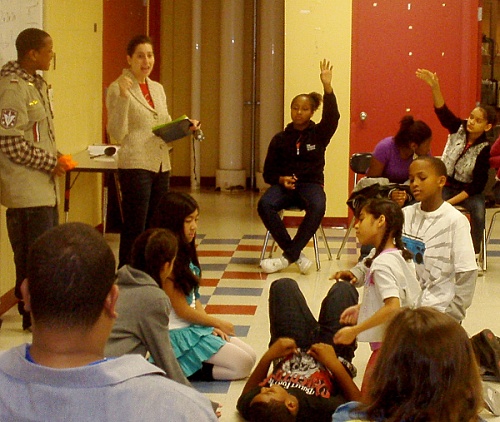Meet the Teaching Artist: Deborah Kronenberg
Posted Friday December 13 2013 at 09:59 am.
Used tags: drama, education, teacher, theater, vsa
I use theatre techniques as tools for all students to deeply engage in content, making their own meaning as part of a student-centered, strengths-based community of artists and learners.

Theatre in the classroom is much more than putting on a play. It is an opportunity for students to express their ideas and connections to the curriculum, take on others' perspectives, build non-cognitive skills like grit, tenacity, and self-control, and strengthen 21st century skills like communication and collaboration. Creating theatre is intrinsically inclusive, generating opportunities for students of all abilities to take positive risks and showcase new skills. As students perform and interpret original work, they naturally build expressive and analytic skills necessary for success academically and beyond.
I primarily work with middle and high school students. After I meet with a teacher to gain a clear understanding of the content goals, essential questions, and /or enduring understandings, I will customize a curriculum map, choosing artistic processes and performing arts projects that will best suit the students' learning goals. All residencies include learning through theatre and students creating original work or adapting texts into performance pieces. In the past, students have created stylized scenes depicting ancient Greece, spoken word pieces connecting to the tragedy of the Civil War, presentations on school change, speeches on social issues, tableau slideshows showing worldview, and Shakespearean scenes depicting power. There is great value in continuing to briefly check in with the teachers in person or over email to revise our plan, ensure that the arts are being integrated into the learning, and reaching all learners.

When students reflect on their learning in the residency, they often comment on "getting out of their comfort zone", the "social" learning of "working with teams" and as a whole class community, and "learning by moving" "with less writing". Teachers find their students engaged in the lessons, the desired skills transferring over to other classes, and at the conclusion of the residency they have resources and techniques that can be used with any content in any unit to diversify learning, increase engagement, and reach all learners.

Deborah Kronenberg began performing improvisational theatre in 1996 and teaching through theatre since 2000. She graduated from the University of Pennsylvania with a B.A. in English and a minor in Urban Studies and received her Masters degree from New York University in Educational Theatre. She has worked as a teaching artist in innovative programs in Chicago, New York, and Boston. A published writer in the field, her article, "Towards an Empowerment Approach," was published in the Youth Theatre Journal and she contributed a case study on theatre and Universal Design for Learning to VSA's Contours of Inclusion.
TweetNo comments
